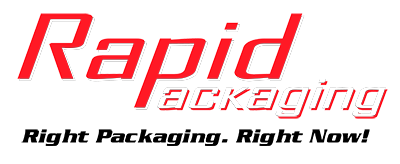We talk a lot about food grade FIBCs on this blog. At National Bulk Bag, we believe (especially in the food grade industry) it’s extremely important to build an educational database for our customers and potential customers. The food industry is a heavily regulated industry where mistakes can be extremely costly. Contamination, regulatory violations, and improper food handling are unacceptable and can be downright dangerous.
This means it is more important than ever that we keep up with the new trends, regulations, standards, and certifications impacting the industry. One of the most impactful organizations in the food industry is GFSI or the Global Food Safety Initiative. GFSI is a private organization that aims to bring together key actors in the food industry to drive continuous improvement in food safety management systems (https://www.mygfsi.com/about-us/about-gfsi/what-is-gfsi.html). One of GFSI’s most important functions is recognizing certain food certification schemes and standards. These “GFSI recognized standards” form fundamental standards for food safety.
GFSI is extremely important to the manufacture of food grade bulk bags. However, not all GFSI recognized standards impact FIBCs. In this article, we’ll examine the 5 GFSI recognized standards that have a significant impact on the FIBC industry.
The 5 GFSI Recognized Standards
- BRCGS
- We start this list with BRC (recently rebranded to BRCGS) and for good reason. Used by over 29,000 certified suppliers, BRGS is one of the most widely used and recognized food standards used in over 130 countries. That is why BRCGS is one of the primary manufacturing facility certifications we at National Bulk Bag look for when vetting our overseas food grade bulk bags suppliers. BRCGS recently released Issue 8 – for more info check out this article we wrote on the topic (for more information about BRCGS, check out their website by clicking here).
- IFS
- Founded in 2003 under the name International Food Standard, IFS (now known as International Featured Standards) are uniform food, product, and service standards. Focused on auditing food manufacturers, IFS certifications and standards are mostly applied when products are processed or a hazard for contamination exists during food processing. IFS aims to ensure comparability and transparency for consumers throughout the entire supply chain while simultaneously reducing costs for suppliers and retailers (for more information on IFS certification, check out their website by clicking here).
- SQF
- The SQF Program or the Safe Quality Food program is a rigorous and credible food safety and quality program widely recognized by retailers, brand owners, and food service providers worldwide. SQF is unique in being one of the only GFSI recognized food schemes that includes both a safety program and quality program under a single umbrella (for more information on SQF, check out their website by clicking here).
- FSSC 22000
- FSSC 22000 or The Foundation Food Safety System Certification 22000 is a scheme that offers complete certification for the auditing of Food Safety Management Systems (FSMS). The scheme uses the international standards such as ISO 22000, ISO 9001, and ISO/TS 22002-1. FSSC 22000 employs twenty food safety professions that work on continuous improvement and innovation to fulfill FSSC 22000’s mission (to learn more about the certification, check out their website by clicking here).
- Primus GFS
- Primus GFS, owned and managed by Azzule Systems, is the latest certification standard to be recognized by GFSI (recognized in June 2018). Primus GFS’s certification is offered in 20 countries around the globe. Of the various audits included in the program, notable audits include the Food Safety Management System (FSMS), Good Agricultural Practices (GAP’s), Good Manufacturing Practices (GMP’s), and Hazard Analysis Critical Control Points (HACCP) (for more information on Primus GFS, check out their website by clicking here).
Always Vet Your Distributor
If you’ve purchased food grade bags in the past or are planning on doing so in the future the best thing you can do is vet your distributor. Asking questions is one of your most powerful tools in making sure you’re getting food grade FIBCs that have been manufactured in food grade certified facilities. We talk about it a lot on our blog but we believe it’s a point that needs to be continually reinforced.
Thanks for Reading!
 In today’s competitive food marketplace, IFS and other GFSI recognized accreditations are increasingly important and you need the right packing to ensure compliance.
In today’s competitive food marketplace, IFS and other GFSI recognized accreditations are increasingly important and you need the right packing to ensure compliance.
With over 20 years of food industry experience, National Bulk Bag has the expertise to help you select the right food grade certified bag for your product.
Click the button below to download our Food Grade Bulk Bag Buyer’s Guide. By downloading this guide, you will get access to our food grade comparison chart, things you should look for in a food grade supplier, and everything else you need to know about purchasing food grade bags.







